Lehigh MBA Success, and More – New York City News

Let’s explore some of the most interesting stories that have emerged from New York business schools this week.
Extraordinary Outcomes for Lehigh’s 1-MBA and M2 Programs – Lehigh College of Business and Economics
This past spring saw Lehigh graduates from the College of Business and Economics’ inaugural 1-MBA (1-year full-time MBA) cohort, as well as the third cohort of its M2 (MS in Management) complete the transition from the classroom to the boardroom.
Employers like Tesla, QVC, and Hubspot snatched up 1-MBA graduates while Amazon, Bloomberg, IBM, KPMG, and more extended offers to nearly 80 percent of M2 graduates. This statistic is very much in line with figures from the 2017 graduates of the M2 program—96 percent of which were employed within three months of graduation by the likes of Deloitte, Vanguard, IBM, and Amazon.
You can read more about the recently Lehigh MBA success here.
School of Management Students Provide Support to Businesses Looking to Export – Binghamton SOM Blog
This semester, Binghamton SOM students took part in the six-month ExportNY “Launch into the Global Marketplace” program, a unique offering that adjunct assistant professor founding director of the Center for International Business Advancement (CIBA) Elena Iankova developed to help give “regional businesses [the] knowledge and resources needed to export their products.”
The basic idea that underlies the “Launch into the Global Marketplace” program is that students research, consult, and support the export plans of participating businesses. Iankova explains: “It’s a two-way street. The students provide the companies research assistance and consultation, and the companies provide the students real-life experiential learning opportunities, helping them develop their management research and consulting skills.”
The program is a partnership between the CIBA and the Alliance for Manufacturing & Technology (AM&T), the Global New York Program of Empire State Development, and the U.S. Commercial Service and the Small Business Administration.
One of the participating companies, Awestruck Ciders, “produces hard ciders from NY state apples” and hopes to export its product to the South African market. Co-founder Patti Wilcox writes: “We think it’s important to the local economy to expand our view of the market on a global scale. We’re fascinated by this idea of an international cultural exchange, and we think doing so commercially is very valuable.”
You can read more about the program here.
The Endless Scroll: How to Tell if You’re a Tech Addict – PC Mag
Just recently, PC Mag dropped its lengthy article “The Endless Scroll: How to Tell if You’re a Tech Addict,” written by Rob Marvin.
In the piece, Marvin highlights Irresistible: The Rise of Addictive Technology and the Business of Keeping Us Hooked from NYU Stern School of Business professor Adam Alter, who doesn’t mince his words when it comes to tech addiction.
“There’s a myth that there’s something different about people with addictions from people without addictions,” Alter explained in his interview with Marvin. “Right now, if you are a person who doesn’t have an addiction, does that make you in some qualitative or categorical way different from people who do? The more I’ve studied this, the more I realized that just isn’t true.”
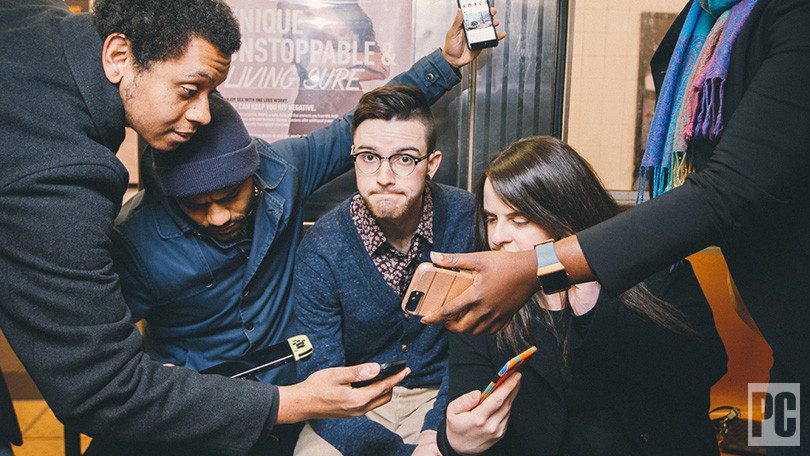
“Right now, if you are a person who doesn’t have an addiction, does that make you in some qualitative or categorical way different from people who do? The more I’ve studied this, the more I realized that just isn’t true.” – NYU Stern professor Adam Alter, interviewed by PC Mag / Photo via PC Mag
You can read more from Marvin’s excellent piece, out now, over at PC Mag.
Finding the Best Laptop for Business School
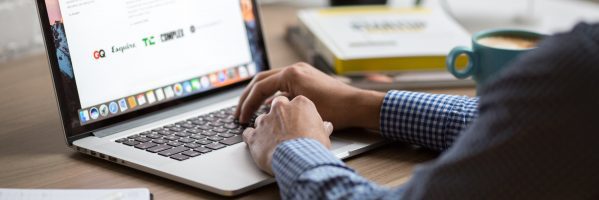
Brand. Affordability. Technical specifications.
In no certain order, these principle factors are the three pillars to consider when purchasing a laptop. For prospective business school students, despite having very different priorities than your average consumer, these three factors tend to weigh above everything else. However, before starting any MBA program, there are a few more things that they may need to consider.
Finding The Right Laptop for Business School
The UCLA Anderson School of Management, one of the world’s most familiar business school institutions, gives incoming students a comprehensive guide of what kind of laptop they’ll need before starting the MBA program.
Like many business schools, most of the software required by the UCLA Anderson MBA program run on the Windows operating system. As we previously mentioned, this is primarily because business school students are expecting to utilize familiar programs like Microsoft Excel. Windows is the standard operating system for most computers, however, it can be installed on Macs for optimal use.
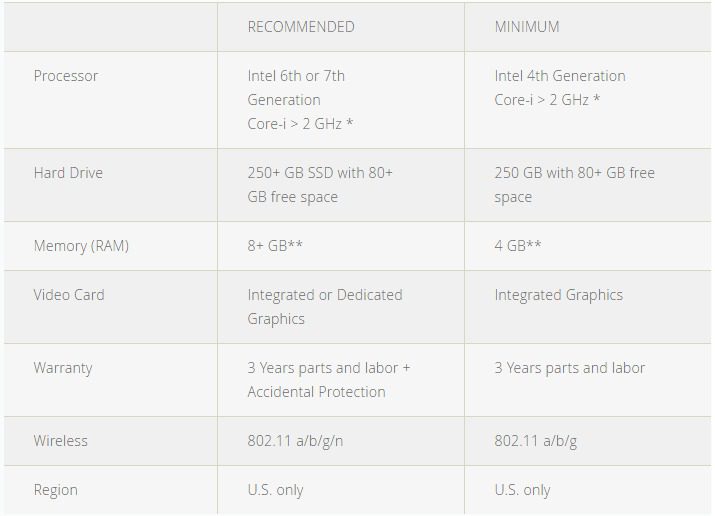
Technical specifications recommended for UCLA Anderson MBA students.
Many of the specifications UCLA Anderson details in their recommendations for students, such as the 4 GB of memory, come standard with most mid-level to premium-level laptops. For the unfamiliar, 6th and 7th generation processing units are also standard for any recently-purchased PC. The last 4th generation Intel processor was shipped in early 2015.
Using UCLA Anderson’s guideline as an informal rule of thumb, we’ve broken down what optimal devices you should be looking for if you’re enrolling in an MBA program, or need an immediate upgrade while you continue your studies.
Looking for Something Affordable
For those in the market for a more affordable machine or are concerned their recently purchased Chromebook isn’t up to par, there are more options than ever in the affordable laptop market. The Acer Aspire E 15, the world’s best-selling laptop, is among the most affordable bets available. Lauded by Laptop Mag, which called it the best sub-$500 laptop on the market, the Acer Aspire E 15 starts at a surprising $350, or, $429 coupled with Windows Office. The standard $350 model comes with an Intel i-3 7th generation processor and 4 GB of standard memory with numerous upgrade options available.
For a slightly larger investment, however, MBA students may be hard-pressed to look at the Lenovo ThinkPad 13.
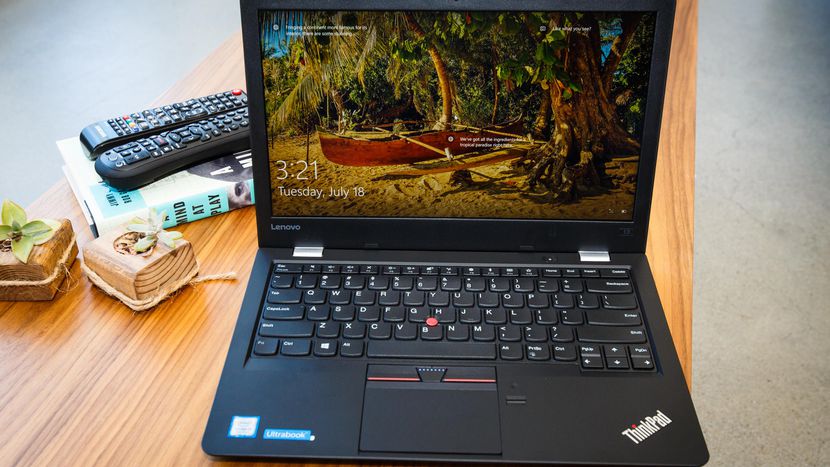
Lenovo ThinkPad 13/Photo via CNet
The ultra-durable (military-tested, in fact) ThinkPad has become a staple model for the business community. Starting at just under $500, the ThinkPad 13 has numerous available upgrades with an astounding 12-hour battery life. For those enrolled in or joining an MBA program, the model comes with a standard 4 GB of memory, but requires an upgrade to an Intel 7th generation processor.
The Optimal Mid-Tier Option
For those looking to invest a bit more in your purchase, Dell’s mid-tier XPS and Inspiron models might be the best machine upgrades without going the bank-breaking route.
The award-winning XPS models have become the crown jewel of the laptop market for the past few years, rewarded by outlets like Laptop Mag, PC Magazine, and TechRadar as one of the best computers on the planet. The XPS 13, starting at $799, comes packed with the latest 7th generation Kaby Lake Intel processor, providing a visual performance that cannot be matched by even the best affordable options. With some welcoming but not totally necessary upgrades, the not-yet-released 2018 model will sport a slightly reduced price even with the fully-packed new specs, including the 8th generation Intel i-7 processor, 8 GB of memory and 256 GB of SSD storage. Still, for MBA students, the standard XPS 13 or slightly larger-sized XPS 15 are more than enough to start.
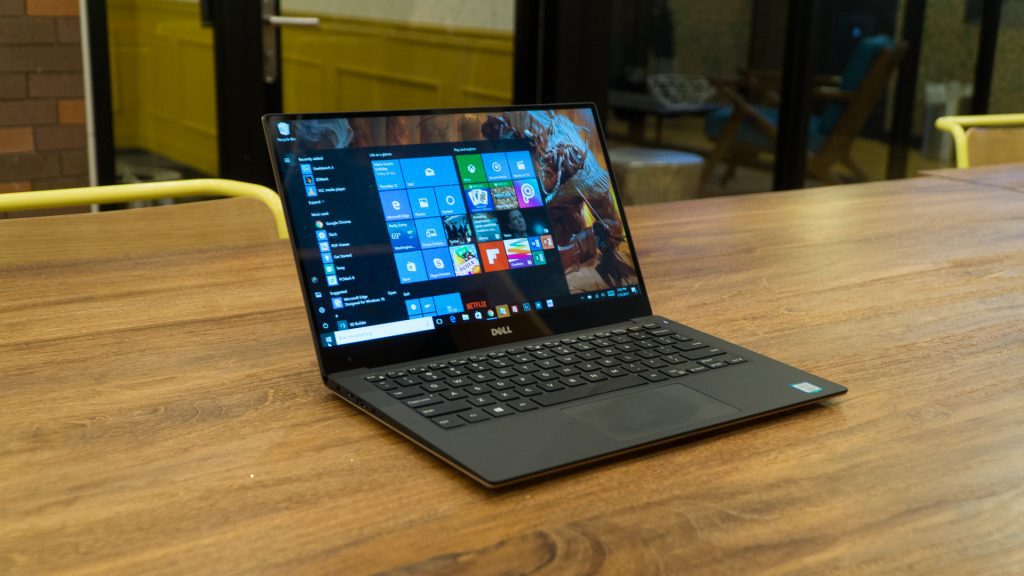
Dell XPS13/Photo via TechRadar.
High Rollers
No one will argue going for the affordable route, but, let’s be honest for a moment. If you’re seriously considering enrollment in an MBA program, or are already enrolled in business school, dishing out a couple hundred more bucks for a top-tier laptop model doesn’t even come close to tuition rates. Plus, if you’re looking at the new laptop as an investment, then providing some more resources might be the best choice you can make.
Beyond the $1,000 benchmark, the aforementioned Mac becomes obvious. The visually-stunning new MacBook Pro may be the most hip offering out there, even with the $1,499 starting price tag (which jumps to $1,799 with the giddy TouchBar). The 13″ MacBook Pro boasts some of the sleekest industrial design of any available model, although without any available USB ports. To make the machine slimmer than the competition, Apple, to a sea of complaints and curious convictions, eliminated much of the standard ports included in most laptops in favor of adaptable Thunderbolt C ports. For the business student, the model may not seem to be precisely necessary. But for entrepreneurs looking to expand a brand with world-class designs and presentation, there may be no better accompanying device.
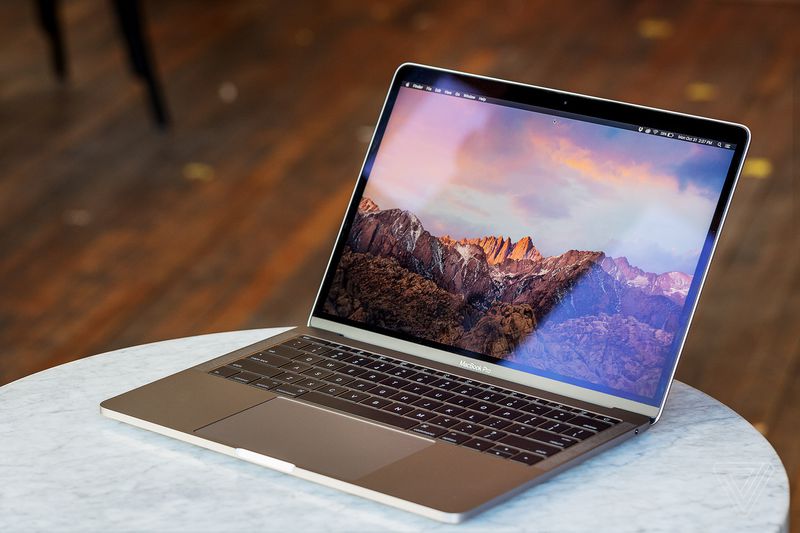
The new MacBook Pro/Photo via Verge.
Still, foregoing a machine that comes complete with Windows OS isn’t recommended for MBA students. For those that prioritize sleek exterior design and slim portability, then why not go right to the source? Microsoft’s endearing Surface Pro is among the world’s most beloved models, called the “Best Laptop Right Now” earlier this year by Verge.
“Microsoft’s new Surface Laptop is the best laptop for most people because it blends power, portability, and battery life better than any other computer. It has a great keyboard and trackpad; a beautiful, high-resolution touchscreen; and comes in four different colors. It uses Intel’s latest processors and can be specced out with up to 16 GB of RAM and 1 TB of storage.”
Like the aforementioned Dell XPS 13, the Surface starts at $799, but fully modifying the machine is probably the way to go. Unlike the other models mentioned, however, Surface Pro owners have the option to immediately upgrade to Windows 10 Pro for free. This offers easily usable features welcome to any business school climate, along with the standard Intel 7th generation processing unit.
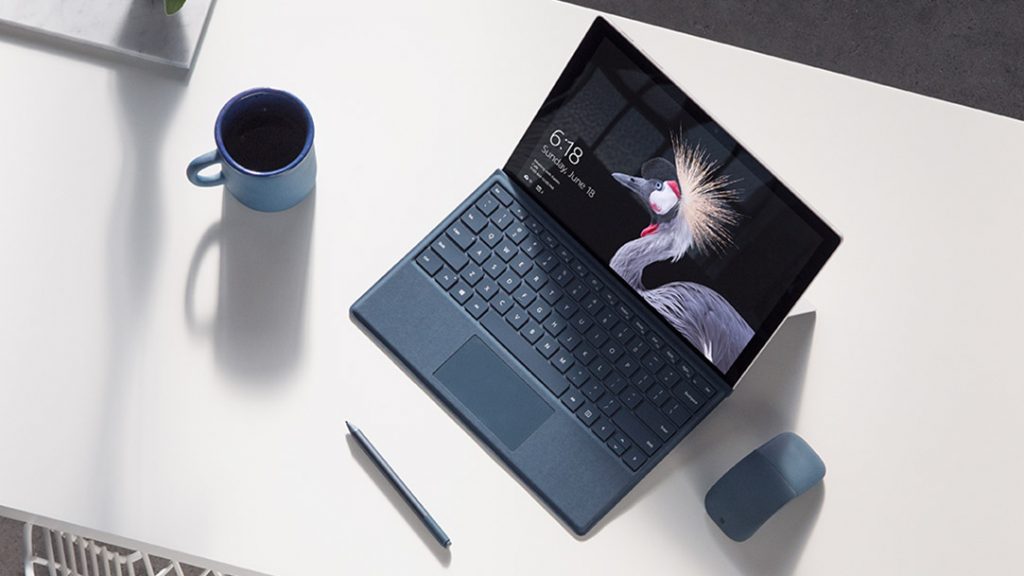
Microsoft Surface Pro/Photo via Microsoft
When Should You Buy a New Laptop?
According to Cnet, the right time to buy a laptop might not be so obvious, like Black Friday. Rick Broida writes, “Sure, you’ll see some low-end laptops priced to move, but high-end models—gaming laptops, ultraportables and the like—don’t usually see big Black Friday price cuts. Rather, history suggests that these machines sell for less in the summertime, during back-to-school sales.
For those looking to invest in a higher-end model, do not expect sales any time soon—if at all. Optimally, whichever laptop you have must be ready before the start of the MBA program. Some schools, like the aforementioned UCLA Anderson School of Management, require a laptop review months before the program begins, so a purchase is better made sooner than later.
